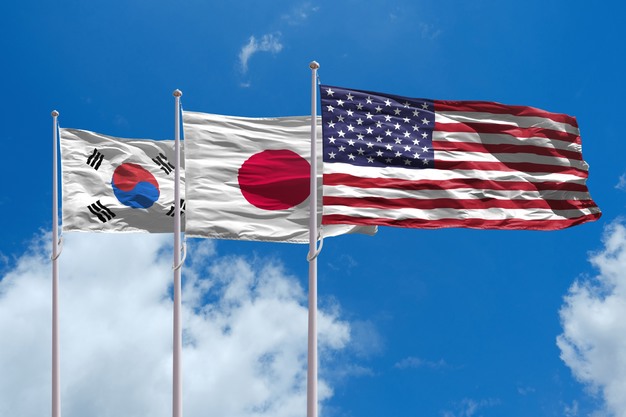Japan and South Korea are facing mounting pressure to strike a trade deal with the United States before 1 August, as the US government confirms it will impose reciprocal tariffs of 25% on goods from both countries unless a deal is reached. The move follows letters sent by President Trump signalling an intent to accelerate trade negotiations.
 © Tomasragina | Dreamstime
© Tomasragina | Dreamstime
'The US will impose reciprocal tariffs of 25% on goods from Japan and South Korea on 1 August, unless a trade deal has been agreed by then,' ING reported. The tariff for South Korea remains unchanged, while Japan's rate is one percentage point higher than the one initially announced on "Liberation Day", though still below the 30–35% range previously hinted at.
Domestic political headwinds have stalled progress. In South Korea, 'the recent leadership change in early June made it difficult to make meaningful progress,' while Japan's upcoming upper house election has similarly constrained Prime Minister Ishiba's ability to move forward on politically sensitive issues like rice imports.
Still, markets reacted with cautious optimism, interpreting the delay as a sign negotiations could yet yield results. South Korea's KOSPI rose 1.8% and Japan's NIKKEI climbed 0.3% on 8 July.
Both nations aim to agree on a 'packaged deal encompassing tariffs, non-tariff barriers, and defence expenditures' before the deadline. South Korea is expected to favour a high-level summit approach, while Japan will persist with working-level negotiations.
The recent US-Vietnam trade agreement offers a possible model. 'We believe that both countries can lower the reciprocal tariffs to near 10% and try to negotiate sectoral tariffs – 25% on autos and 50% on steel. But the US won't make a concession on sectoral tariffs,' ING notes. Key sticking points include US demands for more market access and limits on steel and auto tariffs, particularly with Japan.
To bolster their cases, both Japan and South Korea have increased direct investment in the US, with notable contributions from Hyundai, Posco, Nippon Steel, and SoftBank. Japan, now the largest source of FDI to the US, is also likely to stress its strategic importance in the Indo-Pacific.
Analysts warn Japan's political climate may fuel volatility. 'If the ruling coalition fails to secure a majority, it may trigger further complications and delay trade negotiations.' Conversely, South Korea's new president, buoyed by parliamentary control and high approval ratings, is expected to push for a swift summit to 'reaffirm the alliance and strike a deal.'
More information:
ING
www.think.ing.com










